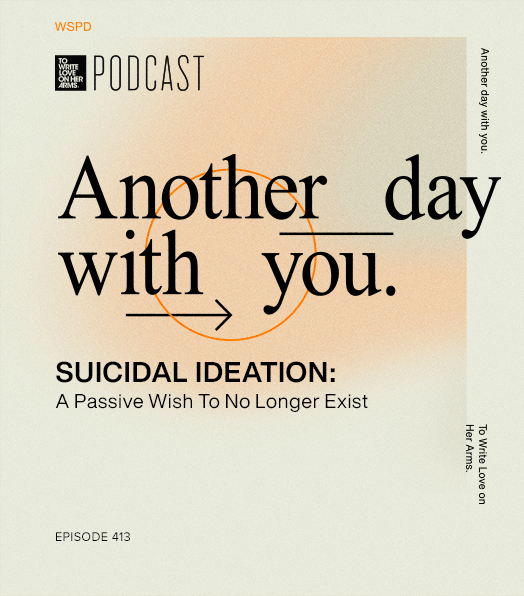

When the pandemic altered nearly every part of daily life, we wondered what it would mean for those struggling, for those currently fighting to stay alive. A mental health crisis already existed and the pandemic only made it more glaringly obvious. The collective trauma and loss nearly doubled the number of people having thoughts of suicide and experiencing depression compared to previous years.
One bright spot, a moment of tragic optimism, is that this shared experience made talking about mental health almost a normal part of everyday life. We were surprised to see moments where the polite, “How are you?” was not expected to be met with an unassuming “fine.”
Over the course of the next few episodes, in honor of TWLOHA’s Another Day With You campaign and World Suicide Prevention Day on September 10th, we want to use this space to have conversations that challenge the lie that says we can’t or shouldn’t talk about suicide. We want to share real-life experiences as they relate to suicide attempts, loss, and ideation. For today’s episode, we’re joined by Ashley Holstrom, who is talking about the latter: suicidal ideation. As you’ll find out in more detail, suicidal ideation has been a part of Ashley’s existence as far back as she can remember. And for her, she describes the thoughts as passive rather than active; she thinks these thoughts but has no plan to act on them. They are a “passive wish to no longer exist.”
Ashley is a professional book person, designing for an indie publisher and writing for Book Riot. She’s an advocate for mental health, reads any book about mental illness she can get her hands on, and wrote an essay about trichotillomania (compulsive hair-pulling) for the young adult anthology (Don’t) Call Me Crazy. Ashley lives in the Chicago area with her rainbow library and cats named after Hemingway and Asimov.
“I have been very afraid to open this part of myself up to the world, and had a list of reasons why I shouldn't write about it or talk about it. Then I'm just like, ‘Well, but if I can save just one life, my discomfort for a couple of minutes is worth that.’”
This episode of the TWLOHA podcast was hosted by Chad Moses and produced by Rebecca Ebert. Music assistance was provided by James Likeness and Ben Tichenor.

Sign up for our newsletter to hear updates from our team and how you can help share the message of hope and help.
Join our list